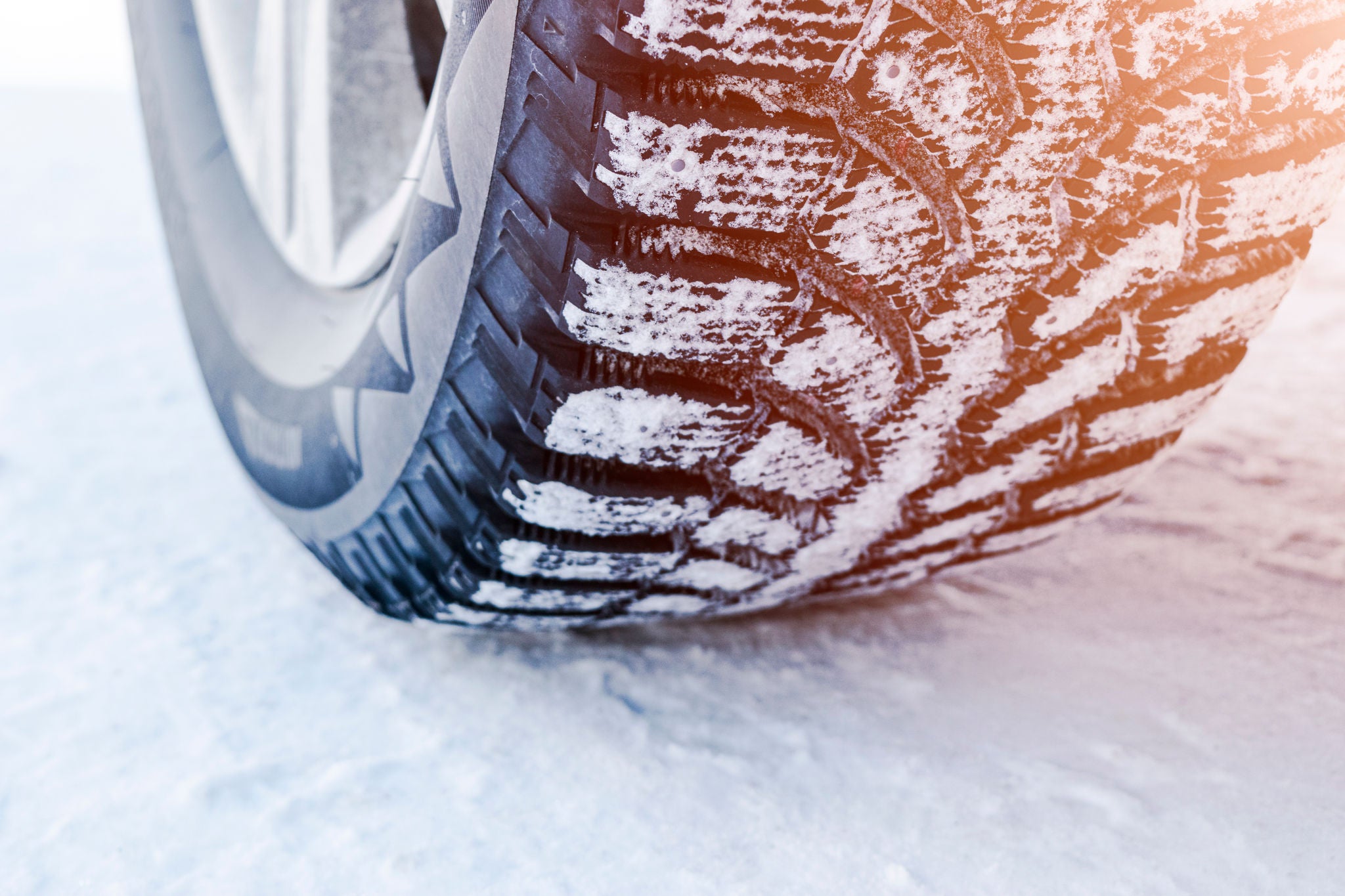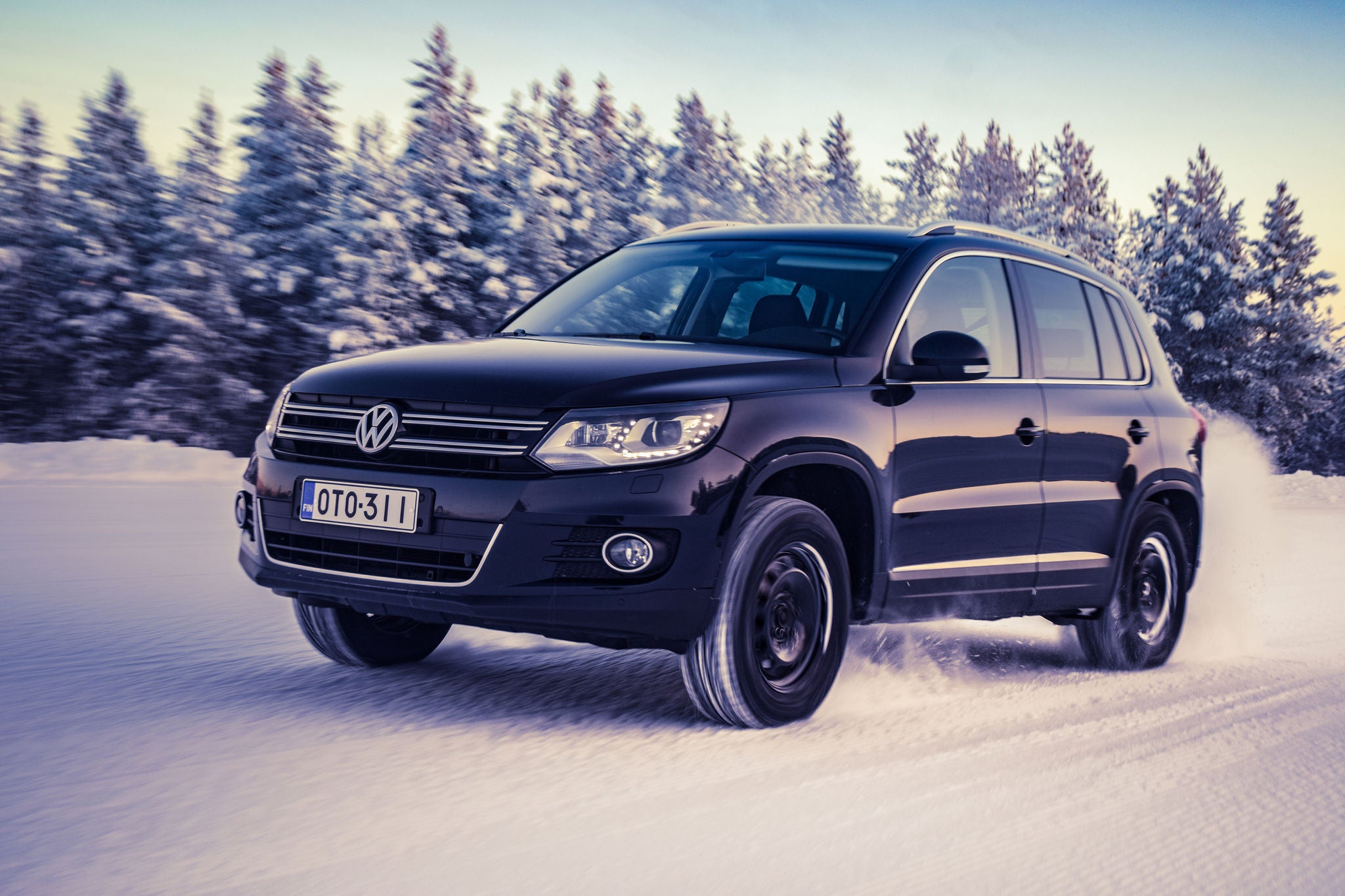
In most cases, the question of whether drivers should use aluminium or steel wheel rims is a matter of taste. While alloy wheels are eye-catching, steel rims are less expensive and more robust. But, how are the differences noticeable during the cold season? Which wheel rims are suitable for winter use?

Aluminium or steel rims: Which wheel rims should you use for winter tyres?
Wheel rims are essential for the stability of the tyres. Whether the preference is for aluminium or the better option of steel – it is personal criteria such as price, quality and design that are decisive factors. One thing is certain: You see steel rims a lot more often because they cost less. On the other hand, many car drivers get a thrill from alloy wheels because of their sporty appearance. Still, are there any actual differences in performance – particularly during the cold season?
Anyone using new winter tyres can choose between alloy and steel rims. Alloy wheels score points with many drivers for their trendy appearance and abundance of individual designs – which is why they also want to show them off in winter. However, there is a possibility that they can pose a real danger. Of course, the tyres on the car are the deciding factor for road safety in the winter. Nevertheless, having the correct wheel rims for winter tyres also contributes to safety. Unfortunately, not all alloy wheels are suitable for winter conditions.
What are the differences between aluminium and steel rims?
Unlike durable steel wheels, the aluminium version is more prone to corrosion. This means that: in winter, alloy wheels can oxidise on the flange. The flange is the curved edge of the wheel rim. Without adequate coating, small bubbles will quickly develop. The affected areas will no longer provide proper sealing. This will ultimately result in gradual loss of tyre pressure, leading to unstable driving behaviour.
For those who place great importance on the visual aesthetics of their wheels, manufacturers now also offer winter-proof alloy wheels. These have a special powder coating that protects against damage and any possible oxidisation. For anyone who does not want to compromise on their aesthetic in winter, these models are strongly recommended.

On the safe side with steel rims
Steel rims with winter tyres present no safety risk, even without any additional treatment. On the contrary: the material is significantly more stable and thus less vulnerable to de-icing salt, grit etc. Steel rims do rust from time to time, but only on the surface and without affecting their stabilising properties. A sensible compromise is therefore to swap the rims with the tyres. In October, when it’s time to change over to winter tyres, it is best to switch from your alloy wheels to their steel equivalents.
Correct fitting of winter tyres on alloy or steel rims
Regardless of sporty aluminium or robust steel rims – ultimately the decision is down to the selection of suitable tyres for the wheels. If the tyre is too large or too small, it is quite possible that it will not fit on the desired wheel rim. An unstable assembly like this can lead to dangerous situations while behind the wheel. If, for example, you already have wheel rims and simply need winter tyres, you should definitely take note of this and only choose tyres that match the size of your wheel rims. Also remember that: Only winter tyres with rims with special coatings are suitable for use in mud and snow.

Tips
- Information about whether your alloy wheels are suitable for winter driving is generally available from the manufacturer. For this reason, you will often find this information in the product description or in other documentation supplied with the product. Incidentally: You can, of course, also drive with winter wheel rims in the summer so you can use them all year round. This doesn't just save you time and stress. Over time, frequent fitting and removal causes strain to the wheels and shortens their service life.
- It makes no difference to the winter tyre properties whether they are fitted on aluminium or steel wheel rims. The difference is only in their quality. While alloy wheels are usually somewhat lighter for winter conditions, steel rims provide additional robustness. On this point, you should avoid making false economies and either fit winter-proof alloy wheels or switch directly over to steel rims.
Related Topics
-
 2023/03/31Some countries insist that you swap from summer to winter tyres as the cold weather approaches. But what are winter tyres? And why are they compulsory in some places but not others?What are winter tyres?Read more
2023/03/31Some countries insist that you swap from summer to winter tyres as the cold weather approaches. But what are winter tyres? And why are they compulsory in some places but not others?What are winter tyres?Read more -
 2023/03/31What's the difference between summer tyres and winter tyres? Find out more about the special properties of these two Uniroyal tyre types.Difference between summer and winter tyresRead more
2023/03/31What's the difference between summer tyres and winter tyres? Find out more about the special properties of these two Uniroyal tyre types.Difference between summer and winter tyresRead more
